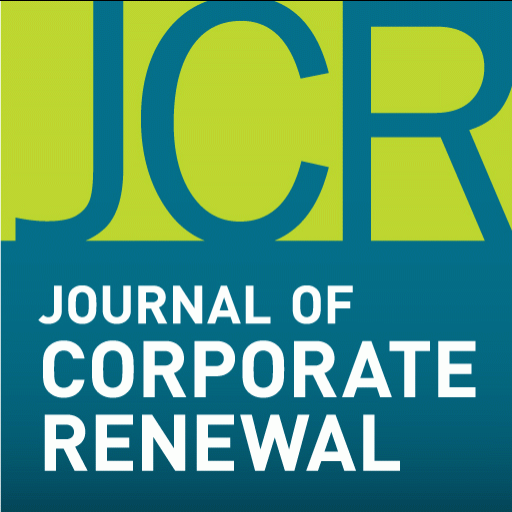Keen-Summit Capital Partners Wins Turnaround Management Association’s 2016 Transaction of the Year Award
By the Editors of Commercial Bankruptcy Litigation
Selling the Aziz Convenience Store Chain at Bankruptcy Auction for $41.6 Million
Harold J. Bordwin and Matt Bordwin, Principals and Co-Managing Directors of Keen-Summit Capital Partners LLC, have received the 2016 Transaction of the Year Award for a Mid-Size Company Transaction by the Turnaround Management Association (TMA). The TMA and the American Bankruptcy Association are the premier organizations in the restructuring and bankruptcy industries.
A debtor as seller in a section 363 sale may well hope to maximize sale price by securing a stalking horse bidder to create a floor bid at which that bidder is committed to buy the assets, thus creating a market and raising interest in the assets. That is the theory, anyway. In Aziz Convenience Stores, L.L.C. chapter 11 case, the Keen-Summit Capital Partners helped validate the theory.
The Bankruptcy Case: In re Aziz Convenience Stores, L.L.C., Case No. 14-70427 (Bankr. S.D. Tex.)
Aziz Convenience Stores, L.L.C. (the “Debtor”) was a McAllen, Texas-based chain of 28 gas and convenience stores under sales stress due to a regional economic downturn and undable to reorganize it its debtor with its principal lender. So it filed for chapter 11 bankruptcy protection on August 4, 2014.
The debtor retained Keen-Summit Capital Partners LLC as Investment Advisor to run a process for getting though or out of chapter 11, either through a sale of the business, refinancing, joint-venture or sale-leaseback. In due course, the Debtor decided to sell substantially all of its assets in a section 363 sale.
The Section 363 Sale
A section 363 sale is a sale of assets of a debtor outside the ordinary course. During a chapter 11 case, a DIP or debtor-in-possession may sell assets in the ordinary course, i.e., conduct the regular selling of inventory or other such property that constitutes the business to be reorganized, per section 363(c)(1) of the Bankruptcy Code.
Sales of bankruptcy estate assets outside the ordinary course, such as sales of substantially all assets of a debtor or of a smaller subset of capital assets, can be valid only after notice and hearing, per section 363(b)(1) of the Bankruptcy Code, and compliance with, among other things, Bankruptcy Rules 2002, 6003, and 6004.
A section 363 sale may qualify to be made free and clear of any interest under section 363(f) – with such interest attaching only to proceeds – and may qualify for enhanced finality per section 363(m). Where applicable, sections 363(f) and (m) can encourage buyers of assets in section 363 sales to offer higher purchase prices.
A debtor as seller in a section 363 sale may strive to maximize sale proceeds by securing a stalking horse bidder to create a floor bid at which that bidder is committed to buy the assets (per an asset purchase agreement that other bidders must use as basis for their bids), thus creating a market and raising interest in the assets. Finding a stalking horse bidder may be the key step toward maximizing value in a given case, and this was among the tasks for Keen-Summit in Aziz.
Value Amplified by Keen-Summit in Aziz Case: from $28 Million to $41.6 Million
In Spring 2015, Keen-Summit helped the Debtor negotiate and execute a stalking horse agreement with Susser Petroleum Property Co. LLC (part of Houston-based Sunoco LP) to sell the stores and related assets for $28 million, plus the value of fuel inventory, supplies and merchandise Inventory. That agreement made Susser the stalking horse, but left open the door for higher and better bids. If another purchaser were to emerge, Susser would be paid a break-ip fee of $840,000 and reimbursement for its own due diligence and bid preparation costs (such fees and reimbursements help potential stalking horses to put on the saddle, so to speak).
Harold Bordwin ran the competitive bid process. As of the Bid Deadline, the debtor had received two qualifying overbids. At an auction in McAllen, Texas on July 20, 2015, Susser prevailed against its two fellow bidders, who were strategic buyers. Circle K Stores Inc. submitted a $41,500,000 backup bid. Susser purchased the chain for $41,600,000 in a transaction approved by the United States Bankruptcy Court for the Southern District of Texas and closed in August 2015.
Other professionals that were involved with Aziz transaction and who won the Transaction of the Year Award alongside Harold J. and Matt Bordwin included Matthew Okin, Esq., and David Curry, Esq. of Okin & Adams (counsel for the Debtor), Doug Brickley (as Chief Restructuring Officer), and Michael Gardner and Ray Platz of The Claro Group (as Financial Advisor). It takes a village of restructuring professionals to maximize value in such cases.
Editor’s Notes: If you found this article useful you may also wish to read this article, this article, and this article. You may also find this webinar on buying distressed assets and securities helpful.
Click Here to visit DACyak Weekly Digest – October 4, 20016 – Volume 6 – Edition 39





